As they get older, children have countless opportunities to learn about the world. They do, however, face issues daily, whether it be peer pressure, complex mathematical computations, or arguments with their peers.
The advantages of problem-solving abilities for children are vast, and they may help them deal with such circumstances efficiently.
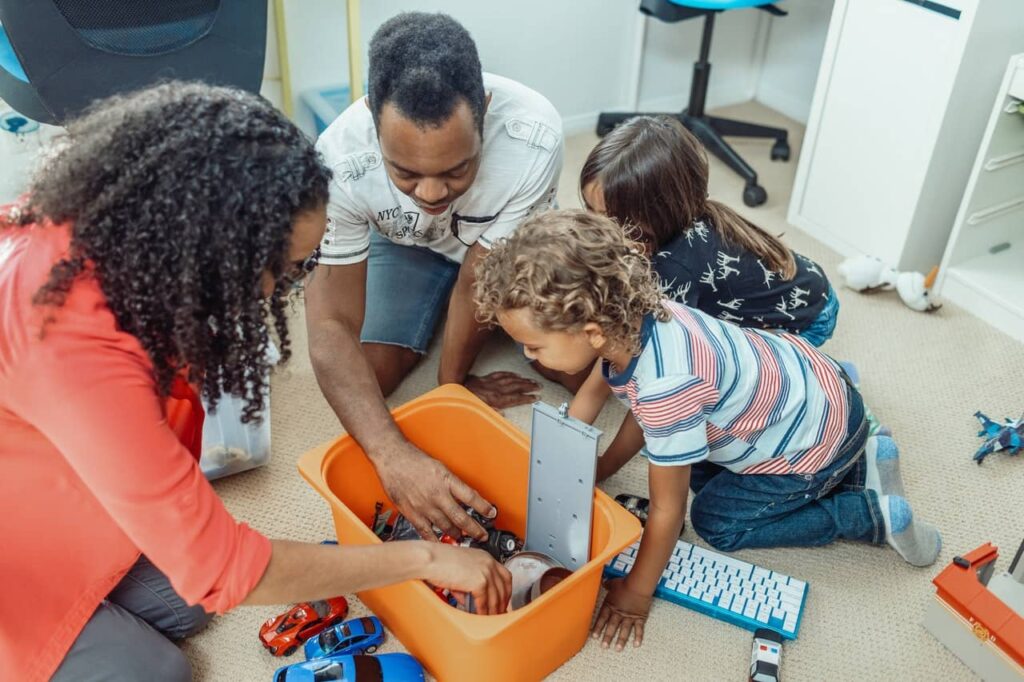
They will learn to develop practical answers on their own, without the assistance of an adult. Furthermore, when faced with challenges, students will be more confident in their abilities to use problem-solving skills and generate unique solutions on their own.
Read on to learn about the importance of problem-solving abilities in children, how to install this talent in them, and some activities to help them develop this important skill.
Table of contents
The Importance of Problem Solving Skills in Children
Children gain from problem-solving in a variety of ways. It is beneficial to them.
- Deal with problems in regular life.
- Make sound judgments.
- Along the way, learn additional skills including teamwork, critical thinking, and collaboration.
- Problems should be solved without being broken down.
- Consider thinking beyond the box.
- Develop your independence.
How to Teach Children Problem-Solving Skills?
Here are a few ideas for encouraging your child to use their problem-solving abilities.
- Put it to the Test!
Encourage your youngster to accept the challenge when they are confronted with a problem. If the outcomes are unsuccessful, they might try different strategies.
Your child will be able to think about a subject from several angles as a result.
- Seek Counsel
Decision-making is a tough task. For example, you could have difficulty deciding what to prepare for supper or what to wear to the movies. Asking your children for assistance in decisions is an excellent choice.
When you approach them for guidance, they believe that they are not alone in their struggles. When you appreciate their ideas, they will gain the confidence to tackle challenges on their own.
- Take a Long, Deep Breath.
Maintaining your calm in difficult situations is one of the first steps toward effective problem-solving. Even among children, when their emotions run wild, it is difficult to think sensibly, and the temptation to make rash judgments increases.
It is critical to encourage your youngster to take deep breaths whenever they feel out of control of their emotions. They can better appraise the problem once they are calm.
- State the Issue Verbally.
Your child should openly express how they feel and what they are going through when they have calmed down. It provides them with a distinct perspective and facilitates the generation of alternate solutions.
- Do not give “The Solution”
It is not a good idea to provide immediate solutions to children’s problems. Instead, provide them with advice to assist them in solving the problem on their own. This will help them to think about solutions that are beneficial to them.
- Set a Good Example
Children quickly absorb knowledge like sponges. Therefore, when you approach an issue and find a workable solution, children will be inspired by your strategy and want to follow you.
- Allow the Natural Consequences to Play out.
Allowing a situation to take its course is sometimes the best approach to dealing with it. So, if your child encounters a challenge, let them be.
Assume your child spent their entire weekly allowance in a day or two; allow them to go the entire week without receiving any money. This will position them to make better decisions in the future.
15 Problem Solving Activities for Kids
There is no better way to learn than by playing. The following exercises are enjoyable and challenge youngsters to demonstrate their problem-solving abilities.
- Riddles
Riddles for kids are fantastic games for problem-solving. They come at various levels of difficulty. The appropriate one may be chosen based on your child’s age.
If you give children a puzzle, they will learn to consider the issue or question, generate potential answers, and select one.
Additionally, the practice will help students improve their hand-eye coordination, gross motor skills, and critical thinking. Also, if your kids have a way with words then what better than to engage them in wordle for kids!
- Scavenger Quest
Scavenger hunts are an instructive activity that every parent should offer to their children. It is a low-cost, easy, and entertaining activity that can be practiced both inside and outside and just requires materials you already have at home.
The activity encourages youngsters to think beyond the box. They are pleasantly acquiring problem-solving skills without even realizing it.
- Storybooks
The advantages of reading are countless. Problem-solving is one of them. While reading, children are introduced to several characters and their roles. They frequently connect with these figures. Undoubtedly, stories for kids are great resources to stimulate their minds!
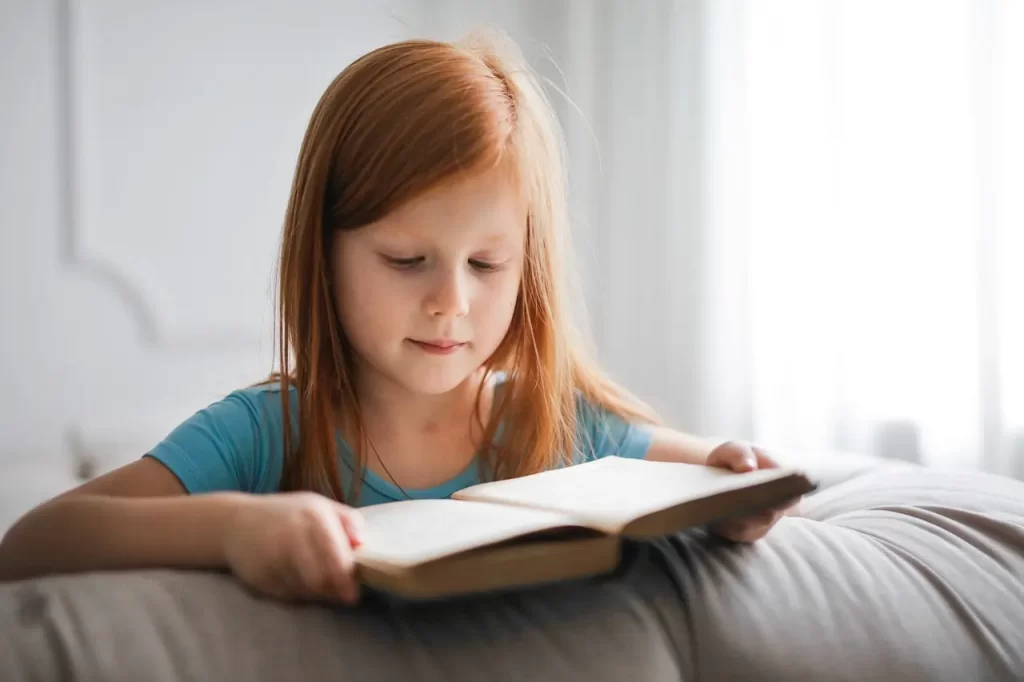
So, if kids encounter an issue, ask them how their favourite character would solve it. Encourage them to produce as many options as they can and discuss the results of each.
- Arts and Crafts
Another fantastic technique to educate youngsters about problem-solving abilities is via arts and crafts. Give your child a variety of things from around the house. Allow them to create fantastic creations or repair damaged devices or toys. Also checkout art hub for kids that can provide an immersive experience to your little ones!
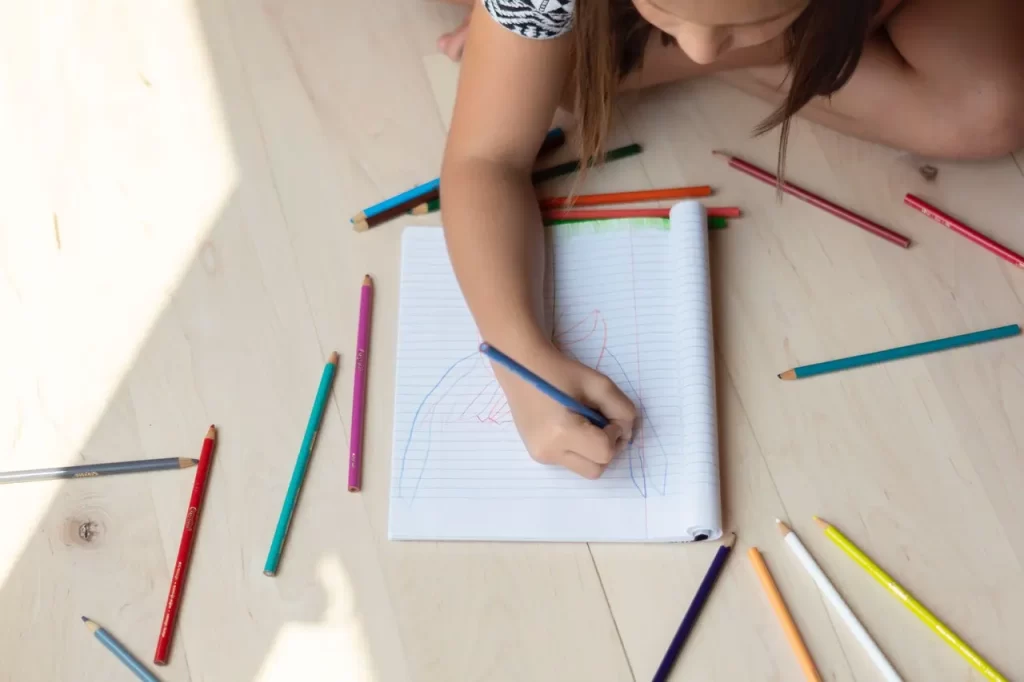
Give them complete freedom to do their task and only offer guidance when they are running out of ideas. And if your kids like to be more hands-on then check out crafts for kids!
- Free-Form Questions
Asking open-ended questions is an excellent method to help your child think creatively and critically and develop their problem-solving abilities.
As there are no right or wrong answers to these questions, and the answer extends beyond a simple “no” or “yes,” they must give some consideration to their responses.
The questions mentioned in the image above are some examples of open-ended questions.
- Maze
Mazes are enjoyable and safe for people of all ages. Working on mazes forces them to think. The practice also helps them strengthen their motor skills, observation skills, sense of direction, and problem-solving abilities.
Think beyond book mazes. There are other maze games available on the internet. They will get better at finding their way out with practice. You may eventually give them increasingly difficult mazes to solve.
- A Little Treasure Quest
The whole family can enjoy a treasure hunt. If they believe they will succeed, you can maintain their concentration on the task at hand.
Give them tips that encourage them to use their imaginations and resolve issues to win the prize.
- Toy Construction
Give your kids building materials like LEGO, wood blocks, engineering blocks, etc., and let them construct anything they want.
Toy construction requires your child to consider what to make, how to assemble the parts, and produce creative solutions to make sure the design is functional.
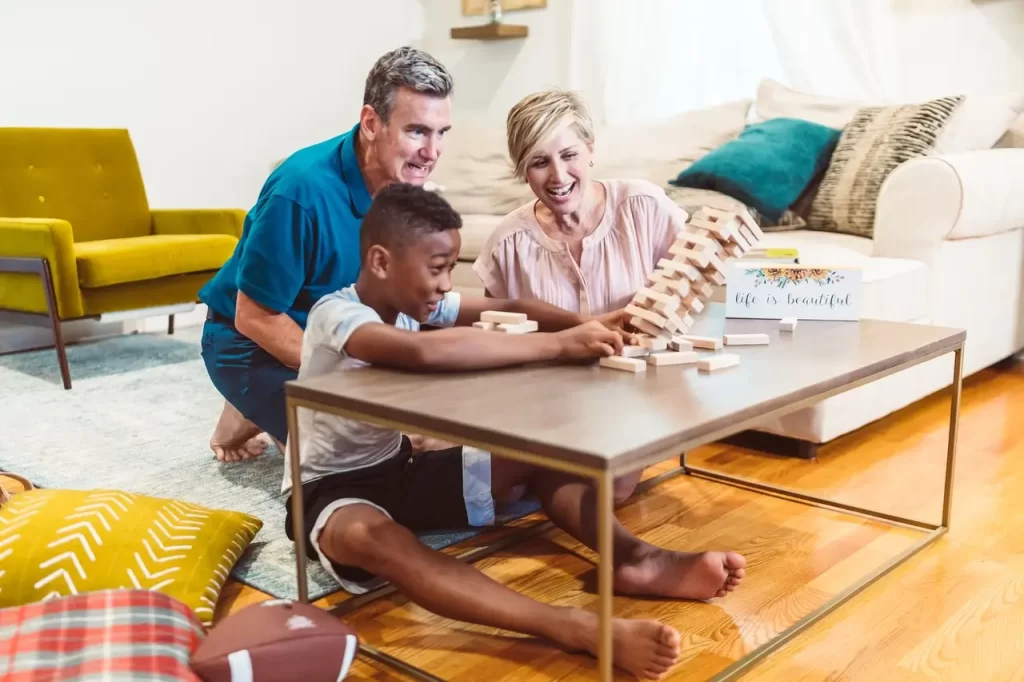
You can occasionally ask them to build something challenging, like a monster with three arms or two buildings joined by a bridge. Watch as they struggle to come up with a structure.
- Woollen Web
Each child should be given a piece of colorful yarn, and they should be told to construct a circle. The yarn ball is passed from one person to the next by wrapping their finger around it.
Once everyone got an opportunity to hold the ball and wrap the yarn around their finger, a web would begin to grow. Now, blindfold one person and instruct them to unwind the web by following the vocal directions of the others.
To figure out a way out, this group exercise requires collaboration, attention, patience, coordination, concentration, and problem-solving abilities.
- The Human Knot
It is a simple game, but very entertaining. A group of youngsters is required for this game. Form a circle with the youngsters and have them raise their hands.
Begin with one player, who must use their right hand to grasp a player’s hand from across the circle and their left hand to grasp someone else’s hand. Examine whether everyone has held both hands with various players.
They must now detangle themselves without breaking the circle. When everyone’s hands are free and they are back in the circle, the challenge is over.
- Improvised Skits
Form teams out of the players. On pieces of paper, write out several scenarios, such as coping with bullying at school or resolving a quarrel between siblings, folding them, and arranging them in a bowl.
Each team or participant chooses a chit and executes the scenario. You may give them a deadline to get ready. These impromptu activities help kids see a problem, come up with a solution, and implement it.
- Group Drawing
Another excellent team-building activity for developing children’s problem-solving skills is group sketching. Form groups of three youngsters.
Each of the team’s three members has a certain function to play. The teacher comes next. The instructor is the one who offers the drawer verbal directions on how to draw a certain design.
The spectator examines the design. However, they are not permitted to speak and must interact with the instructor by using gestures. When the viewer is happy with the drawer’s image, you have a winner. Allow the kids to take turns playing various parts.
- Give me a Hint!
Clue Me In is an entertaining detective game that promotes cognitive growth, critical thinking, and problem-solving skills.
Begin by choosing five to six target responses, such as a prominent figure, an animal, a historical event, a societal trend, or a career. Collect five to ten objects related to each goal answer. They might also be images from the Internet.
Sort them into various bags. Determine how many hints a child can select before making a guess. If there are two, let the youngster choose two clues from a bag and make their first guess. See who can respond the fastest.
- Survivor Case Studies
Here is another game where no items are required. In this game, you must construct pretend-play scenarios for youngsters to solve, and they must analyze and think creatively to do so.
For example, tell them, “You’re stranded on an island, and you know aid won’t arrive for two days” or “How will you build a shelter for yourself out of the materials around you?”
Kids are encouraged by this to think of many scenarios and come up with solutions to the problem. There are many programs for kids.
- Ethical Quandary
Children are frequently put in challenging circumstances. This simple game will help children deal with these situations without them even being aware of them.
Write down several difficulties on pieces of paper, such as “The cashier handed me $1 more in change; what should I do?” or “I watched my friend harassing someone at school.” Should I intervene or let them go? Fold it up and put it in a bowl.
Give each child the opportunity to select one piece of paper, read it aloud, and provide creative solutions to the problem at hand.
Are you interested to know more about kids coding languages? Checkout here!
Conclusion
Problem-solving is a crucial skill to have. Guiding kids in this decision-making skill not only enhances their thinking and creative ability but also trains them to face problems in the future and figure out good decisions.
The above-mentioned activities for kids are some of those, that will help them develop decision-making skills.
To learn more about problem-solving activities for kids, check out the fun yet amazing articles on the BrightCHAMPS blog.
Frequently Asked Questions (FAQs)
Children are believed to have learned the basics of problem-solving by the age of three. However, it is not perfected since it is hampered by a short attention span and trouble grasping problems on its own. Children grow better at solving problems as they get older.
The three most prevalent problem-solving techniques are:
● Trial and error: trying several solutions to an issue until it is solved.
● Algorithm: The process of solving a problem by following a step-by-step formula.
● Following a problem-solving framework, such as breaking it down into steps, is a heuristic.
These games can help you improve your problem-solving, planning, multitasking, and pattern-identification skills.
● Crossword puzzles.
● Sudoku puzzles.
● Jigsaw puzzles.
● Chess. Board games.
● Computer games.
● List games.
Creative problem-solving is a technique that employs imagination and invention. This technique encourages the creative aspect of issue resolution and allows for the generation of fresh ideas in novel ways. It also makes the process more enjoyable and fosters teamwork.
To get your hands on more educational and free resources on coding for kids, robotics for kids, financial education for kids, etc., do check out the BrightCHAMPS Page now!

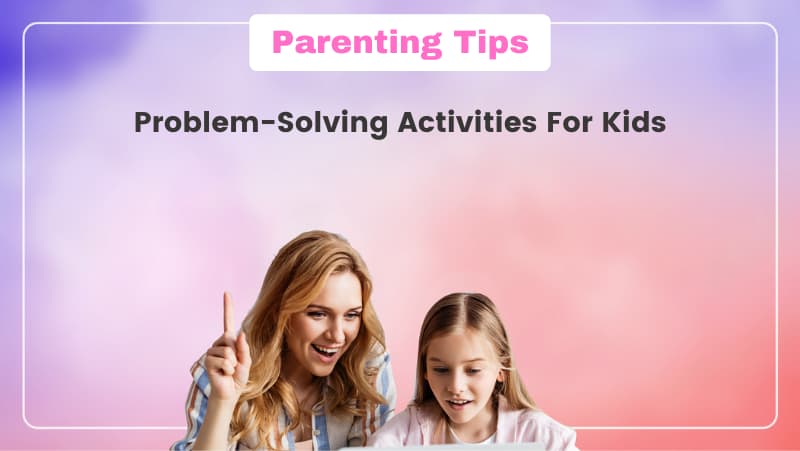
 We are an army of educators and passionate learners from BrightChamps family, committed to providing free learning resources to kids, parents & students.
We are an army of educators and passionate learners from BrightChamps family, committed to providing free learning resources to kids, parents & students.







